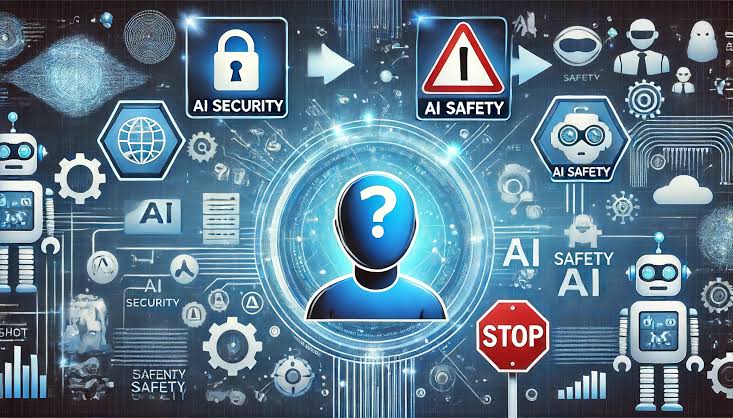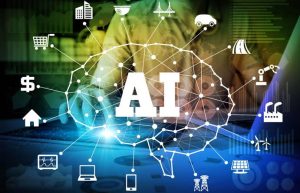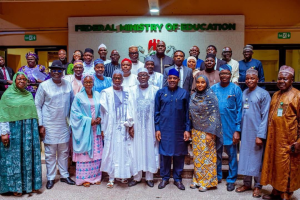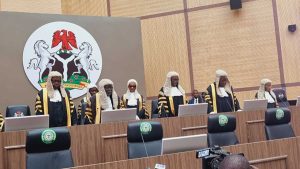
By Abdurrasheed Isah Abubakar
Artificial intelligence has arrived in Nigeria not as a visitor politely knocking at the door, but as a force already embedded in the nation’s economy, politics, and daily life.
It is in the algorithms that approve or deny credit, in the automated filters that sift through job applications, in the surveillance cameras being installed across city streets, and in the viral content that shapes public opinion.
Yet Nigeria stands dangerously unprepared, without a unified national strategy or ethical compass to guide how this technology will shape its future.
The central question is no longer whether AI will affect Nigeria, but whether Nigeria will seize control of this transformation or surrender its sovereignty to foreign corporations, external governments, and unregulated domestic actors.
The most immediate danger is that Nigeria treats AI as a passing trend, a conversation to be had later while the nation wrestles with unemployment, poverty, and fragile infrastructure.
But AI is not waiting on Nigeria’s timetable. It is already redefining access to finance, healthcare, education, and security. If left to unfold unchecked, it will replicate and deepen the worst inequalities of Nigerian life.
Algorithms trained on biased data are already invisibly deciding who qualifies for credit, who receives attention from government platforms, and whose voices are amplified online. A farmer in Adamawa without a digital footprint will be invisible to credit models.
A student in Enugu who uses indigenous language online will be sidelined by platforms designed for English. What looks like neutral technology is in fact the silent codification of exclusion. When injustice is automated, it becomes harder to detect and nearly impossible to contest.
Nigeria’s democracy is perhaps the most vulnerable of all. The integrity of elections is already under strain from mistrust, violence, and manipulation, and artificial intelligence adds a new arsenal to those who wish to distort reality.
Deepfake videos can fabricate the voice of a presidential candidate endorsing ethnic hatred. Generative tools can flood social media with false stories at unprecedented scale.
Recommendation algorithms, optimized to reward outrage, can amplify tribal and religious tensions that already sit on a knife’s edge. This is not a distant possibility; it is a live threat in a country where misinformation has sparked riots and where political campaigns often operate with few restraints.
If Nigeria continues to approach AI with indifference, it risks handing its democracy to machines that can twist truth into weaponry.
The cultural stakes are equally high. Nigeria’s identity is sustained not only through its politics and economy, but through its languages, traditions, and stories.
Yet the AI systems flooding the market are trained primarily on Western languages and narratives. When Nigerian students turn to AI-powered learning platforms that ignore Igbo idioms or misinterpret Yoruba proverbs, when Hausa oral traditions fail to appear in global databases, when Tiv folklore is excluded from the digital record, cultural memory begins to erode.
The loss will not come with explosions but with silence, as younger generations grow up consuming content shaped by algorithms that neither know nor value their heritage. A nation that survived colonial domination cannot afford to sleepwalk into digital colonialism.
The economic risks cannot be overstated. Nigeria celebrates its youth as its greatest resource, yet the very jobs that sustain young graduates—customer service, digital content creation, clerical roles—are the first targets of automation.
Unlike industrial revolutions of the past that displaced factory workers, AI targets white-collar and creative work. In Lagos, Abuja, and Port Harcourt, call centers will need fewer workers.
In the media industry, algorithms will generate reports and translate content at a scale no journalist can match. In the banking sector, AI will replace clerks, risk assessors, and middle managers.
A fragile middle class that has barely taken shape risks collapse before it matures. A nation that cannot secure dignified employment for its youth risks trading innovation for unrest.
The security dimension is already unfolding. Cybercrime networks in Nigeria are experimenting with machine learning to create synthetic identities, to bypass biometric systems, and to generate phishing messages so convincing that even seasoned professionals fall victim.
Meanwhile, the state is drawn to AI for surveillance, predictive policing, and military applications. But these tools carry their own dangers.
Predictive policing will almost certainly target already marginalized communities, labeling poverty as crime. Surveillance without oversight will extend the reach of state control into private lives, crushing dissent rather than protecting freedom.
Military adoption of AI-powered drones and targeting systems risks creating conflicts where accountability is impossible and mistakes are irreversible.
Without ethical frameworks and strong institutions, AI could turn Nigeria into both a laboratory of cybercrime and a surveillance state.
The greatest tragedy is that Nigeria risks replaying the oil curse in digital form. Just as crude oil was exported raw and re-imported as expensive refined products, Nigeria is exporting raw data while importing expensive AI services designed elsewhere.
Nigerian voices, photos, behaviors, and cultural content feed the models of global corporations, but the solutions that return rarely serve Nigerian realities.
This cycle of extraction and dependency is digital colonialism, and if Nigeria fails to act, it will find itself permanently at the mercy of external powers in the very domain that will define the future of the global economy.
Data is the new oil, but unlike oil, its value lies in how it is refined. A country that could not refine its petroleum must not repeat that failure with data.
The choice before Nigeria is not simply whether to regulate AI but whether to define its own destiny. Does Nigeria want AI in healthcare to maximize efficiency for urban elites or to extend life-saving care to rural mothers facing high maternal mortality? Does it want AI in education to privilege English alone or to nurture multilingual richness? Does it want financial AI to maximize bank profits or to extend credit to women traders in village markets? These are questions of sovereignty and justice, not engineering. If Nigeria does not answer them, Silicon Valley and Beijing will.
Nigeria must also recognize that this is a continental struggle. Africa cannot afford to approach AI as fragmented states chasing foreign investment in isolation.
Global corporations thrive on exploiting weakness and division. If Nigeria builds standards while Ghana does not, manipulation will spill over. If Kenya develops indigenous AI but Nigeria remains dependent, Africa’s largest economy will undermine the continent’s collective power.
A Pan-African framework rooted in African priorities—food security, public health, cultural preservation, and fair labor—must be forged. Without it, Africa will remain on the receiving end of yet another technological revolution.
Artificial intelligence confronts Nigeria with a stark choice: dependency or sovereignty. If Nigeria treats AI as just another imported technology, it will deepen inequality, corrode democracy, erase culture, displace workers, fuel cybercrime, and entrench authoritarian control.
But if Nigeria seizes this moment with vision, it can transform AI into a tool for liberation rather than domination.
It can build systems that predict floods before they devastate communities, that preserve oral traditions for generations, that empower small farmers with data-driven insights, that strengthen democracy with transparency rather than weaken it with propaganda. The power of AI is real, but so is the power of political will.
The question is whether Nigeria will act. Artificial intelligence is here. It will not wait for Nigerian institutions to catch up. It will not pause while policymakers debate frameworks. It will not slow down until regulators are ready. The nation must decide now whether to be a consumer or a creator, a colony or a sovereign, a victim of code written elsewhere or an author of its own technological destiny.
History has already recorded Nigeria’s failures with oil and with social media. To repeat them with artificial intelligence would not just be a mistake; it would be a betrayal of future generations.
The fight for Nigeria’s sovereignty in the age of AI has already begun. The only question is whether Nigeria will have the courage to lead it.







